

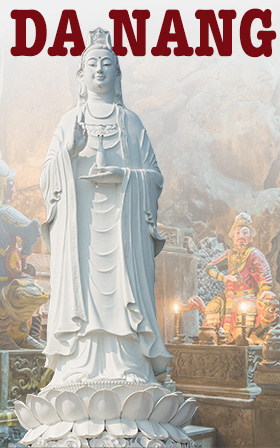
|
The major American air base during the Vietnam war. Today wiht a population a little over a million Danang is Vietnam's sixth largest city and third largest port. It used to be a place where people would pass through travelling south from Hue to Hoi An or in the opposite direction. With extensive hotel development, coupled with its international airport it is becoming a base to explore the central region of Vietnam. Amongst its attractions are Bai But Linh Ung Pagoda and the Marble Mountains. It has an excellent beach and can be used as a base for day trips to Hue and Hoi An. |
Danang's most obvious attraction is its beautiful beach stretching from Danang to Hoi An. Though admittedly the city's night life seems to be concentrated on the city side of the river.
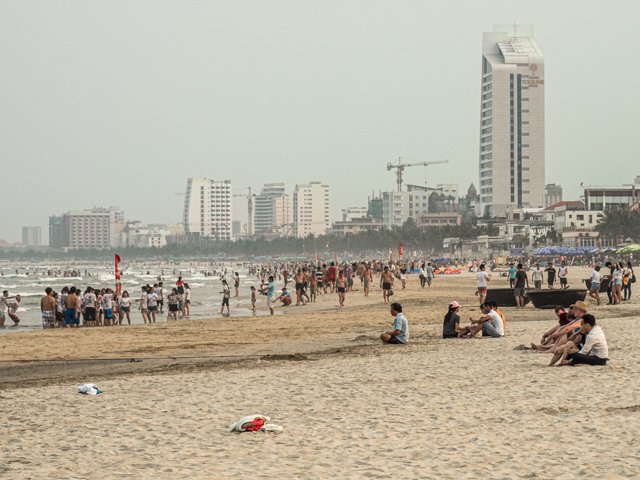
Common along the coast of central Vietnam are handwoven boats, looking like baskets, called coracles. They are woven from young bamboo and then waterproofed with tar or resin. During the French Colonial period, the French placed a tax on all boats. The basket boat was invented as a way around the tax as their owners could claim they were actually baskets. But they still had required duties to perform revolving around fishing. They had to be seaworthy enough not to sink and large enough to hold a day's catch.
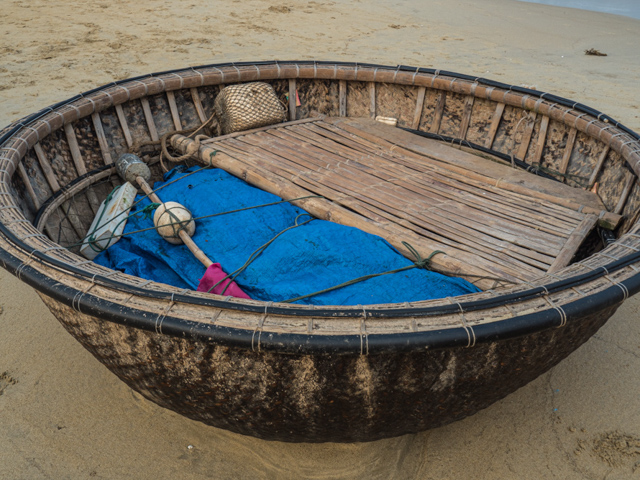
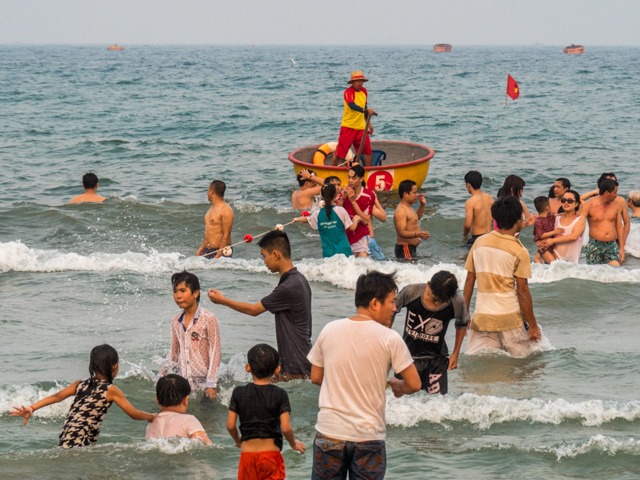
The design is obviously successful as they are still used today.
Looking north, from Danang Beach, a statue can be seen. This is the Lady Buddha statue and is a part of the Bai But Linh Ung Pagoda. The pagoda is about 8 kilometres from Danang Beach on the Son Tra Peninsula. I took a taxi. Before coming close to the Lady it is necessary to climb some stairs.
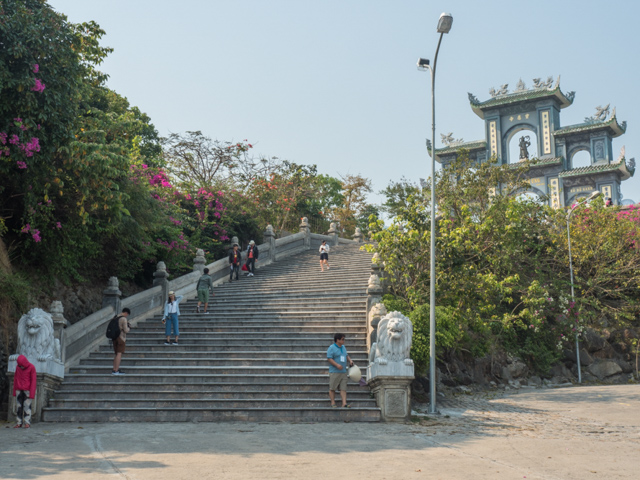
On completion of the ascension I came to a yard, the Arhats garden, in front of the main hall of the pagoda. Not visiting at this time I turned to the right to visit the Lady Buddha.
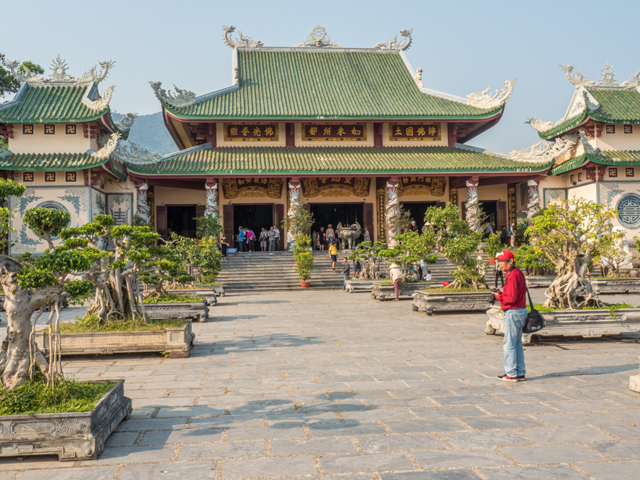
Standing at 67 metres, the Lady Buddha statue is the tallest in Vietnam. Being perched on a 35 meter high lotus pushes the total height to over 100 metres. She stands, serenely looking at the ocean, with one hand praying, perhaps for a successful catch and return of fishermen, and the other, holding a pitcher of nectar.
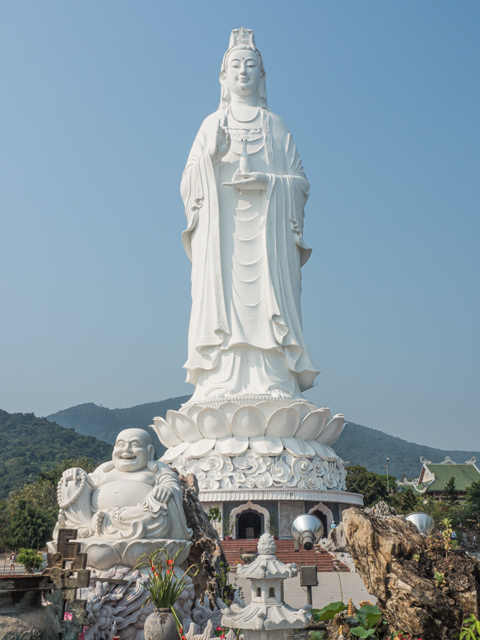
The 17 metres wide interior contains seventeen floors. Each floor has twenty-one Buddhas in different postures. It was closed when I visited.
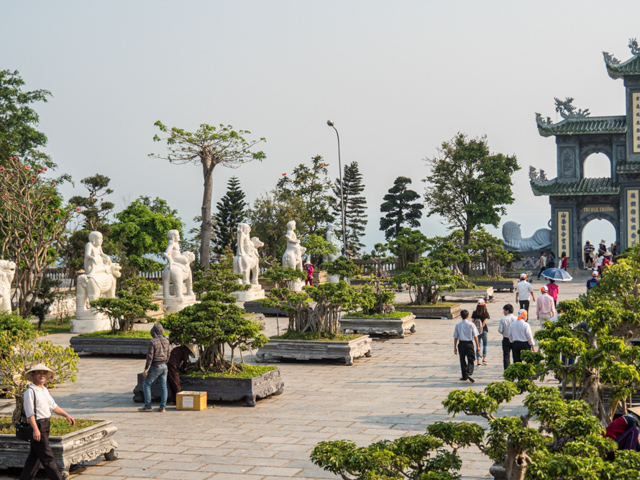
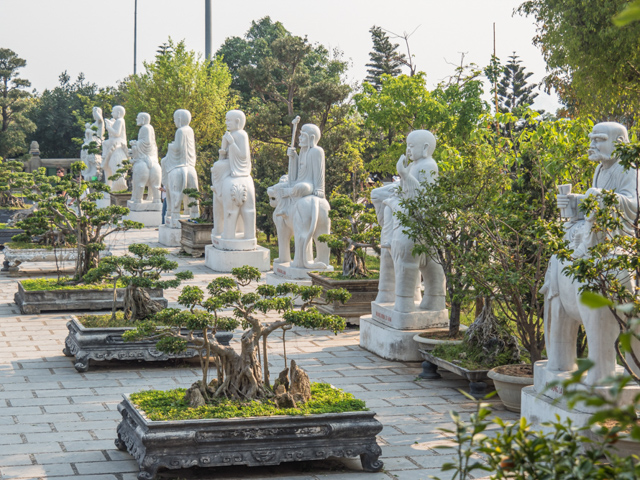
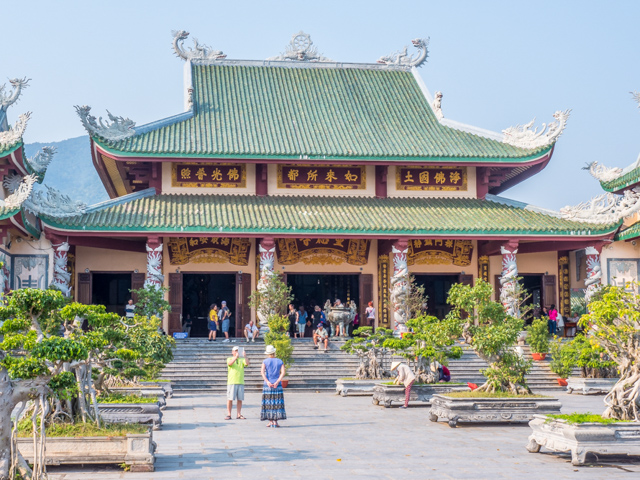
The central statue of Buddha inside the main hall is the Buddha Shakyamuni. In Sanskrit, Shakyyamuni means the sage of the Shakyas. The Shakyas were the Buddha's clan. Statue represents him at the moment of elightment under the Bodi tree.
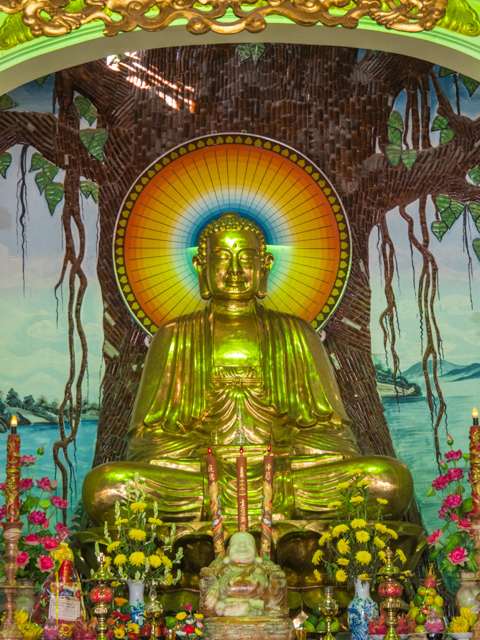
Thoughout the pagoda there are many images and statues of the Buddha and Bodhisattvas. Only a few will be referred to here.
Some statues of Buddha depict him and fat and jolly symbolising good luck and abundance.
Guan Yin is the Goddess of Mercy. Sometimes she is known as the one with a thousand arms. Trying to understand the needs of many her head split into eleven pieces which Buddha turned into eleven full sized heads. Reaching out to help those who needed it, her arms split into a thousand pieces which Buddha turned into a thousand arms.
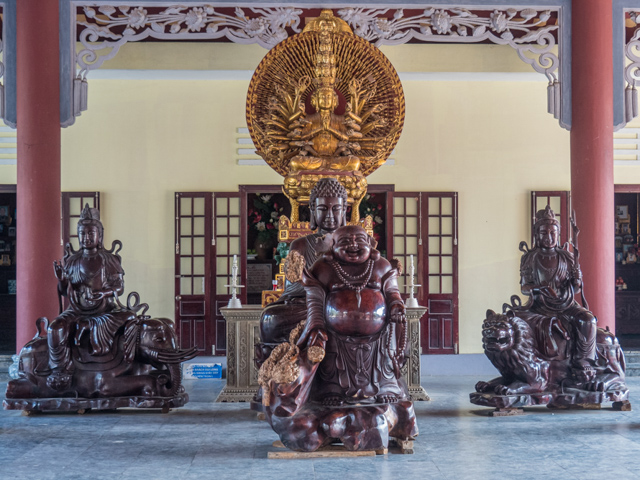
Guan Yin is also depicted holding a vase, the nectar of life or a willow, symbolising strength and flexibility. These are displayed in three beautiful marble bias reliefs which are shown in the image below as a montage.
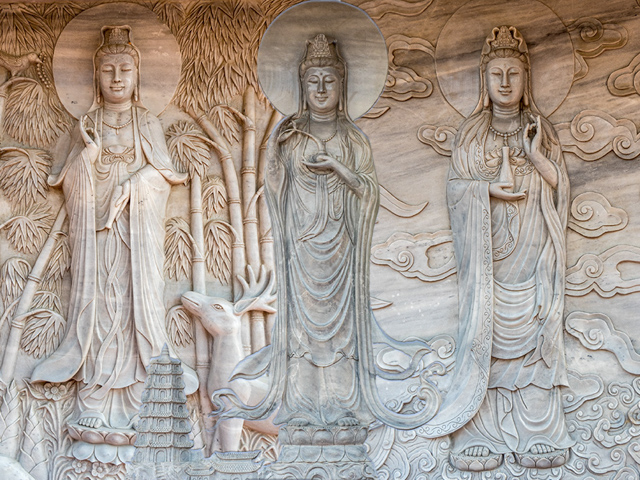
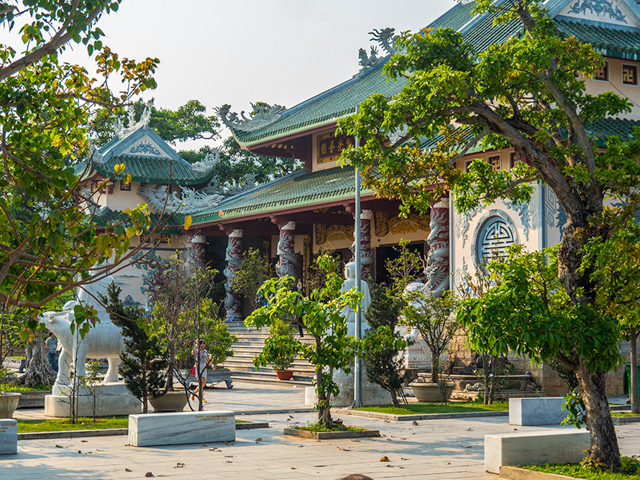
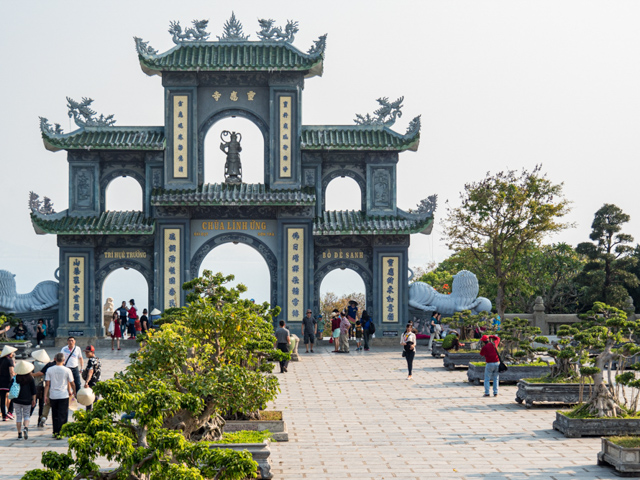
Seven kilomters south of Danang is a group of five limestone peaks called the Marble Mountains. Though containing marble they are predominately limestone karst. The five karsts (called Ngu Hanh Son, the Five Element Mountain, by the Vietnamese) are named after the five elements: Kim (metal), Thuỷ (water), Mộc (wood), Hoả (fire) and Thổ (earth).
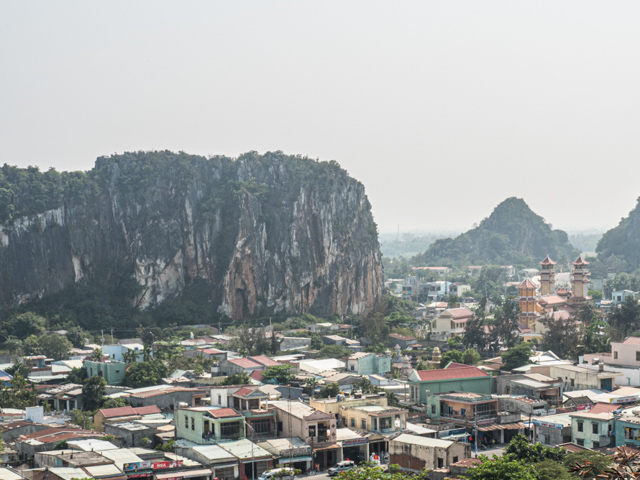
The area is known for stone sculpturing and stone-cutting crafts. Realising marble extraction from the mountains would reduce them to a pile of undesirable rubble it has now been banned. Materials used are now transported from quarries in Quảng Nam and other provinces.
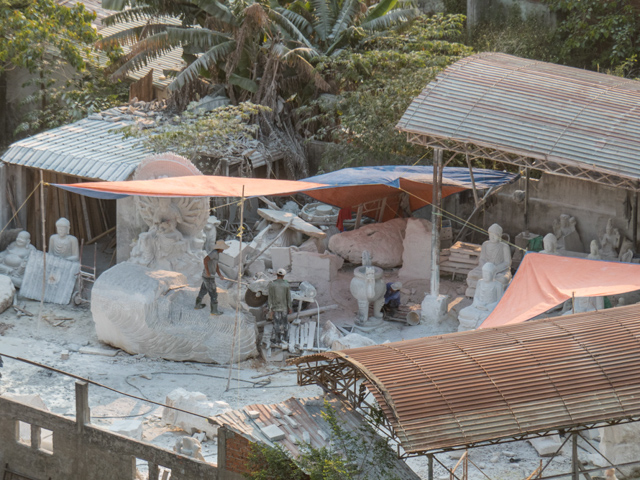
Over centuries, Marble Mountains has held special significance for the people of Central Vietnam. The ancient Cham revered the karsts as a spiritual site. Vietnamese emperors from Hue and legendary generals passing through paid visits to the peaks.
Only Mt Thuy is assessible to tourists. However there are plenty of pagodas and caves to keep you busy for a good part of a day.
Arriving I had the choice of either walking up several flights of stairs or taking the elevator. I took the elevator. Leaving the elevator I was right in front of the Xa Loi tower which is 28 metres high and contains 200 Buddhist statues.
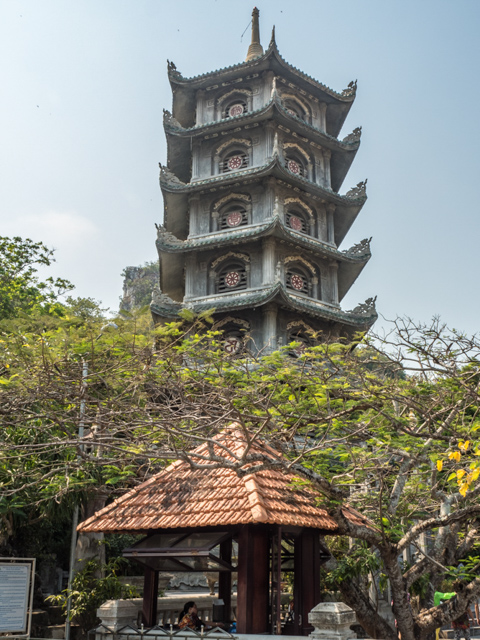
Leaving the Xa Loi Tower and following the path I came to Linh Ung Pagoda. There are three Linh Ung Pagados in Danang. This one, the oldest; the one on the Son Tra Peninsula, the newest; and a third on the Bana Hills, west of Danang. Locals believe the three pagodas create a spirit triangle which protects them from natural disasters such as typhoons.
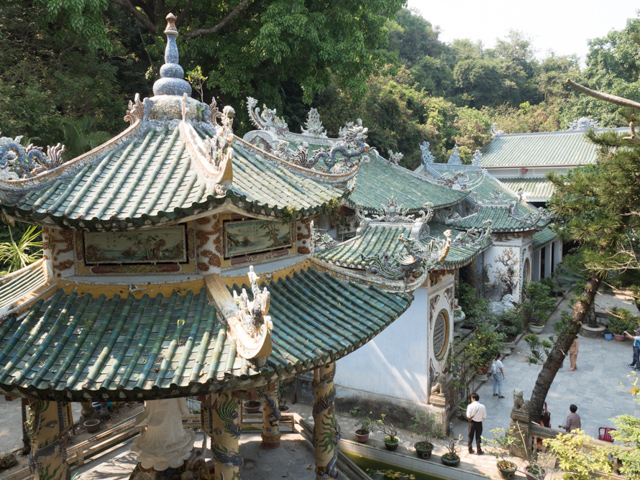
The three Buddhas in the main altar represent past, present and future.
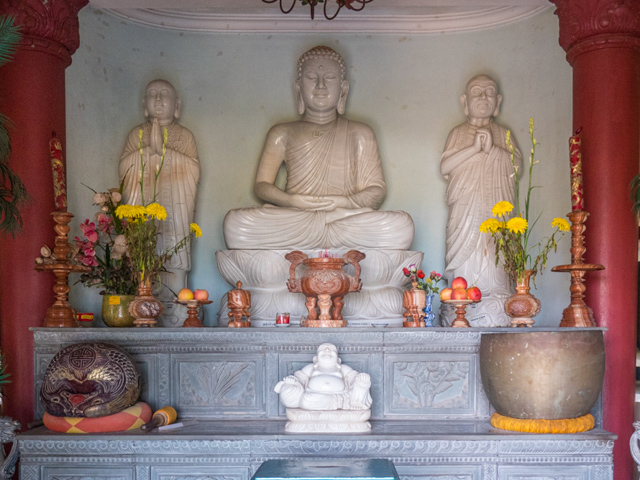
The Lady Buddha pavilion is in a carp pool.
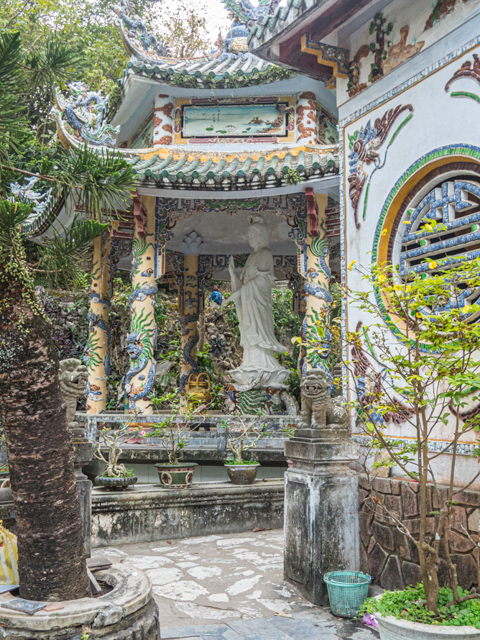
On the grounds are several marble statues of dragons, animals, Buddha's and Lady Buddhas.
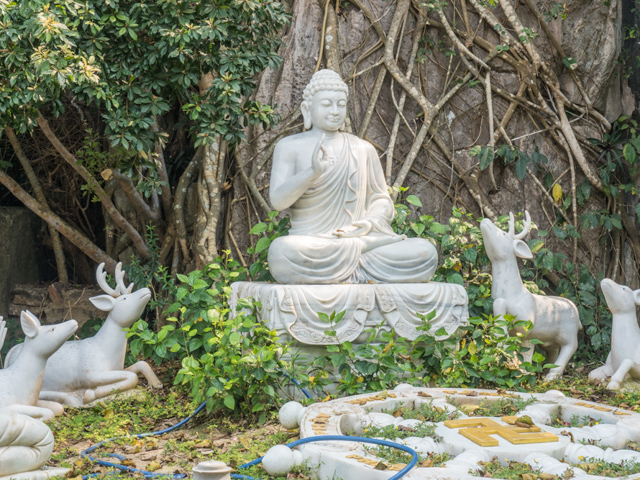
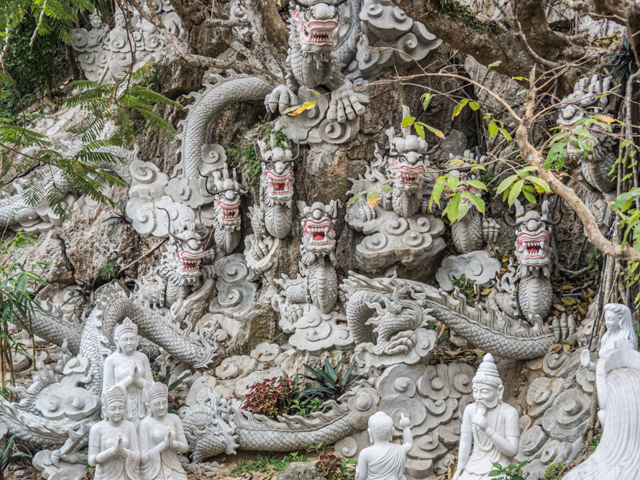
Having left Linh Ung Pagoda I pass through the centrally located Thai Tam Pagoda and walk to Huygen Kong Cave.
Huyen Khong Cave is the largest cave in the Marble Mountains. However entrance that most tourists take into the cave is via the smaller Hoa Ngiem Cave to which it is connnected. The Hoa Ngiem Cave contains a 400 year Lady Buddha statue.
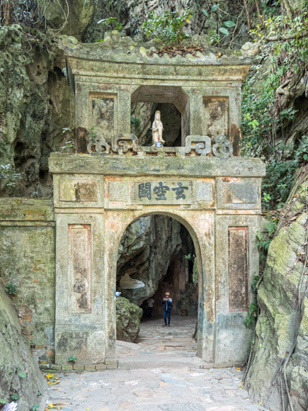
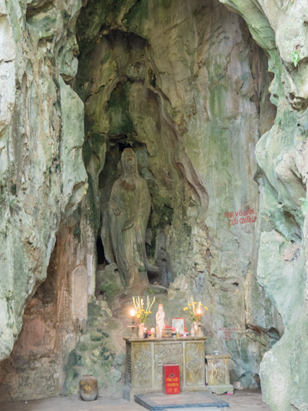
Entering Huyen Khong Cave is to enter a large cavern. It is reasonablly well lit because the partially collapsed roof allowing in shafts of light. Yes, I took the obligatory image of the large sitted Buddha. But my lack of care resulted in blurred images. An unsteady hand ruined a number of my attempted images.
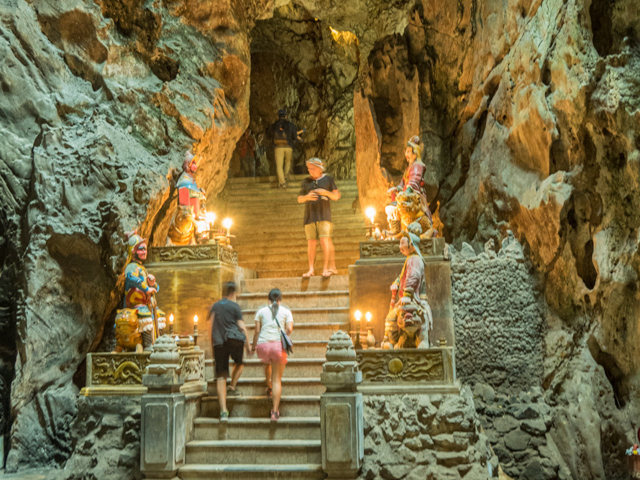
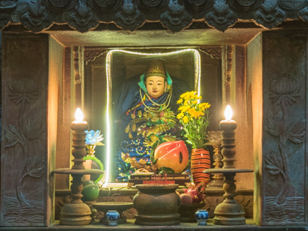
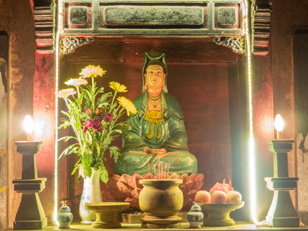
Once again I pass through Tam Thai Pagoda, this time on the way to Tu Tam Pagoda.
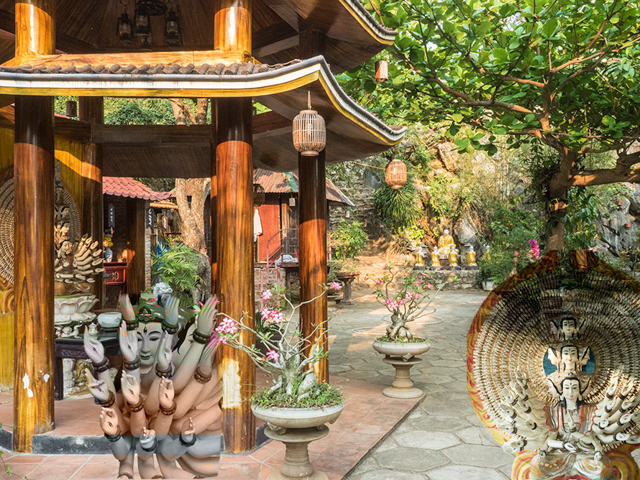
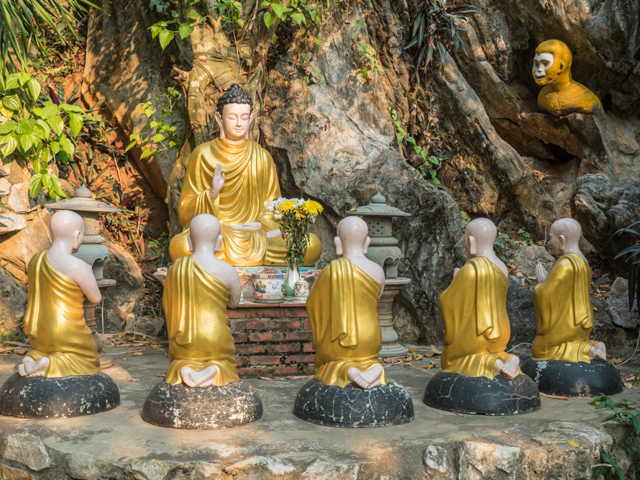
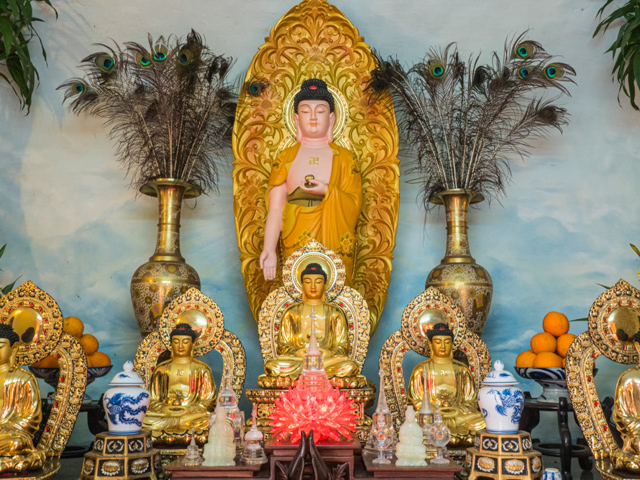
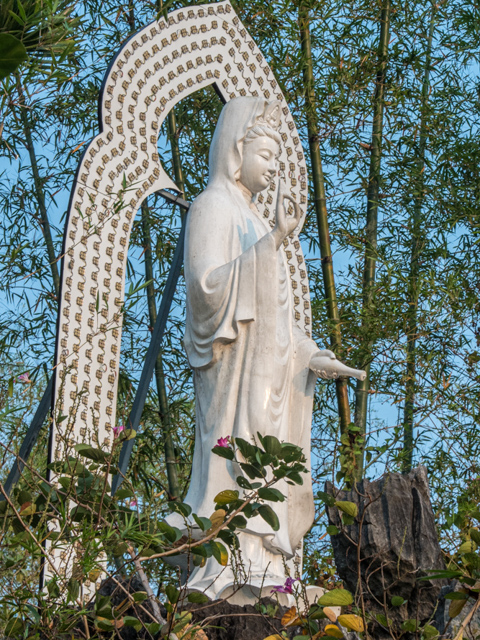
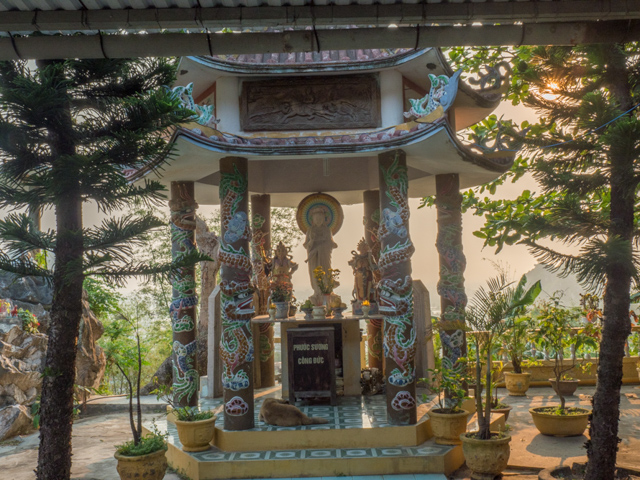
Finally I stop to look at the Tam Thai Pagoda.
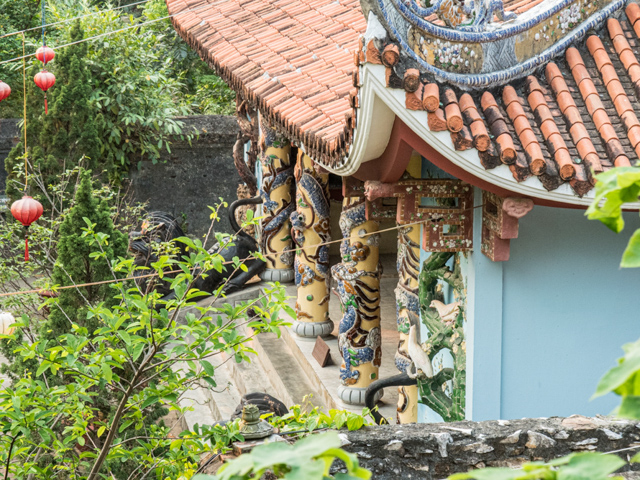
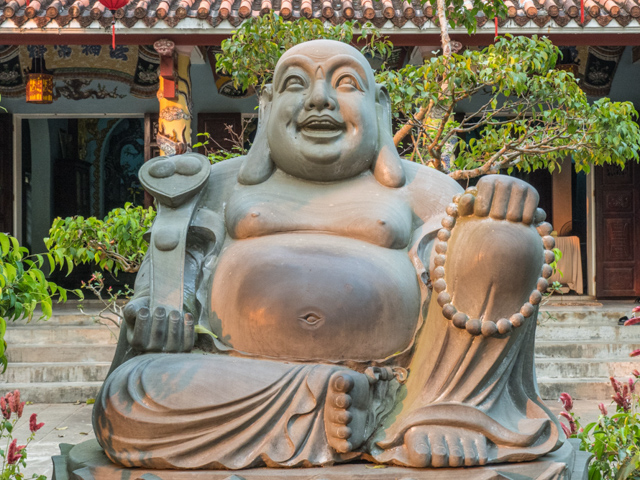
Leaving Tam Thai Pagoda I made my way via the stairs to the base of the mountain. My plan was to enjoy a quiet drink before getting a taxi back to Danang. Unfortunately agressive vendors made this plan impossible!